
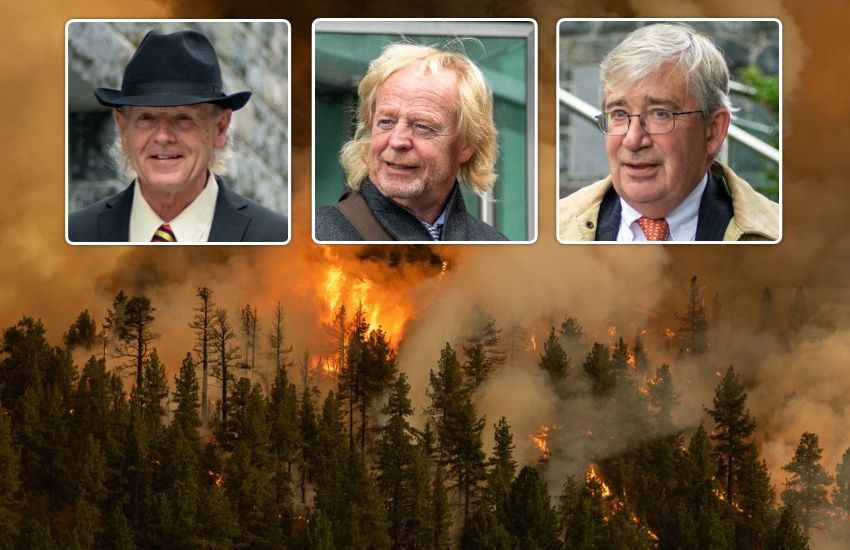

A panel of experts will be appointed to help the island achieve 'net zero' carbon emissions despite a late challenge from deputies who are sceptical about man made climate change.
The States agreed yesterday that responding to climate change should be one of their top ten priorities over the next 12 months. Once appointed, the panel of experts will "scope a proportionate and pragmatic pathway to net zero" for debate by the States next summer.
This work follows Guernsey's recent agreement in principle to adopt the international Paris Agreement on climate change, which includes a goal of 'net zero' by 2050 to help limit the rise in global mean temperatures to well below 2°C.
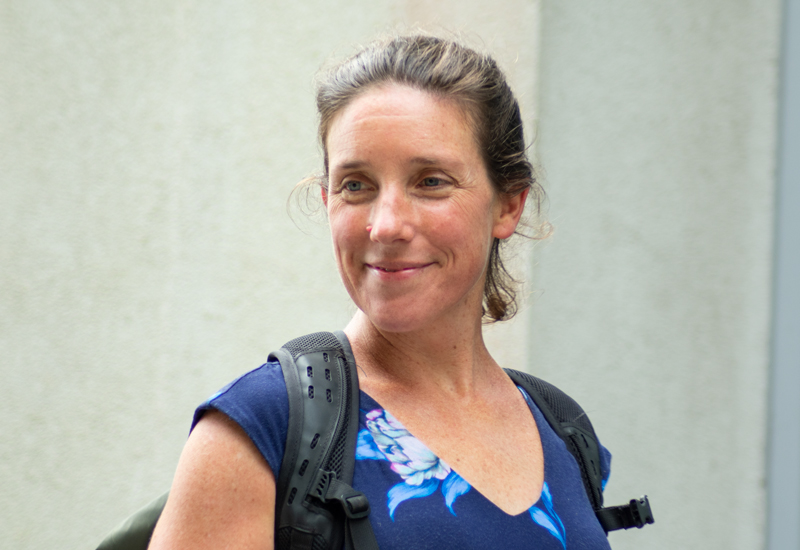
Pictured: Deputy Lindsay de Sausmarez is looking forward to a States' debate next summer after the States agreed to form a panel of experts to come up with recommendations to achieve 'net zero'.
The President of the Committee for the Environment & Infrastructure said there were strong economic as well as environmental reasons for the Bailiwick to play a full part in efforts to stem rising temperatures and mitigate climate change.
"There’s a valuable lesson to learn from the current cost of living crisis. We need to focus our efforts on addressing the source of the problems, not just throw money at treating the symptoms," said Deputy de Sausmarez.
"Whatever we can do to reduce our demand for energy - just as an example, improving the thermal efficiency of our homes - the less we will be affected by the rising cost of energy. The same goes for other resources, too.
"The more efficient and sustainable the system in the first place, the less cost individuals or taxpayers will have to shoulder further down the line."
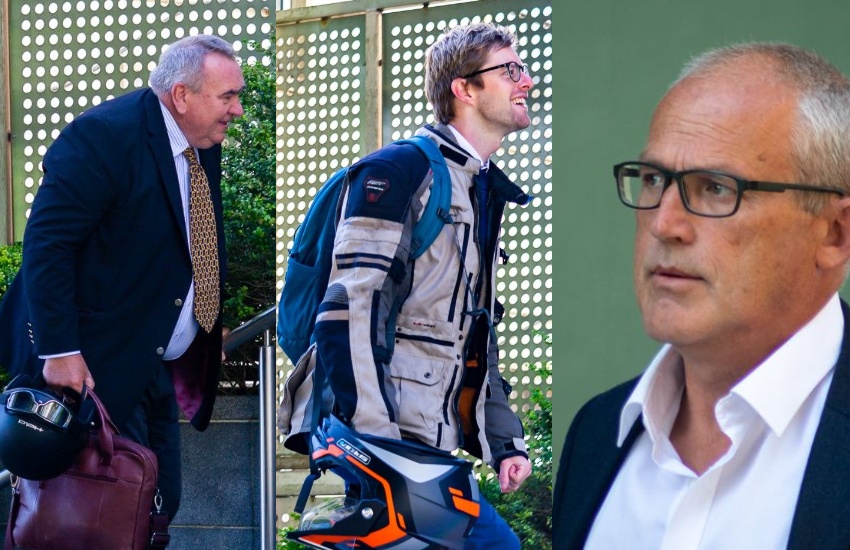
Pictured (l to r): Deputies Simon Vermeulen, Andrew Taylor and David Mahoney were among those who voted against the proposal to appoint a panel of experts to recommend how Guernsey could achieve 'net zero' emissions by the middle of the century.
Four deputies voted against the proposals on climate change: David Mahoney, Bob Murray, Andrew Taylor and Simon Vermeulen. Deputy Lester Queripel abstained.
Deputy de Sausmarez told Express she was amazed when some deputies used the debate to cast doubt on the existence or impact of man made climate change.
Some of the comments from Deputies Queripel, Murray and Dyke surprised me too! However, Dep Dyke supported the proposition on the pathway to net zero work in the end; Dep Queripel abstained and Deps Mahoney, Murray, Taylor and Vermuelen voted against.
— Lindsay de Sausmarez (@Lindsay_Gsy) July 1, 2022
Pictured: Deputy Lindsay de Sausmarez reacted to the debate on social media.
"Young people are the important stakeholders when it comes to climate change, as it is disproportionately their future that our decisions and actions today will shape, and one of the things I find hardest to explain to them is that there are some people in our community who do not believe in climate change and some people in our government who give the impression of holding such views," she said.
"To them, that is mind-blowing. They tell me it’s not a matter of belief – it’s a matter of fact supported by empirical evidence and endorsed by an overwhelming consensus of climate scientists.
"I agree, but this week’s debate was a stark reminder that there are some in our government who do not understand or accept the basic, settled science and are unaware of the evidence of climate change already affecting us here in Guernsey."
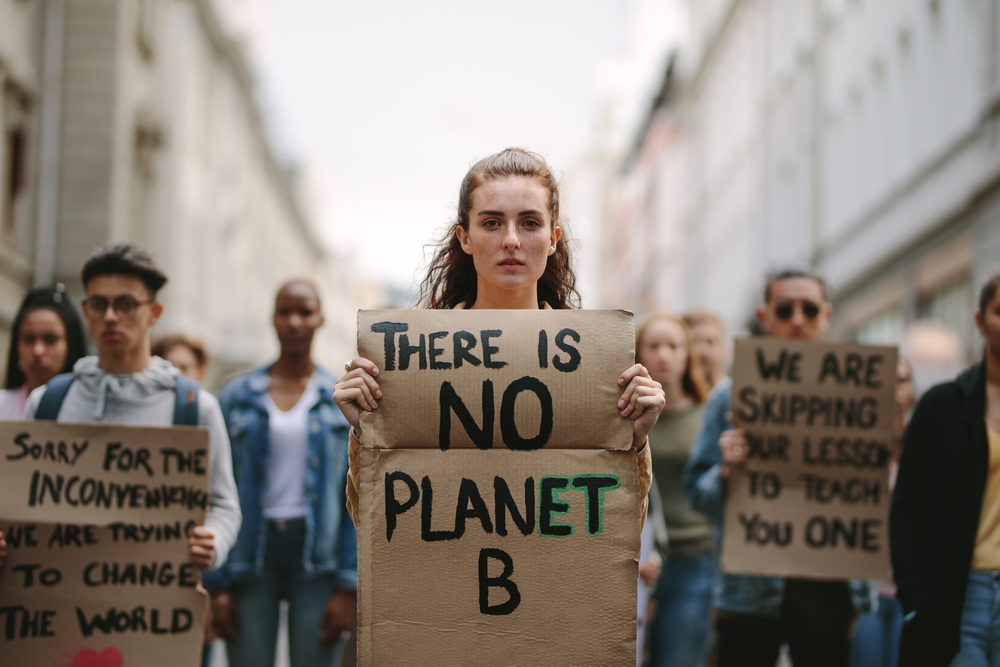
Pictured: Deputy Lindsay de Sausmarez said that young people would find it "mind-blowing" that some deputies doubted "the overwhelming consensus of climate scientists".
Deputy Bob Murray, pictured top centre, said he agreed with the need to mitigate and adapt to climate change.
"Humans have been doing it for centuries. We adopt ways of cooling ourselves when the climate is too hot and keeping ourselves warm when it is too cold. Without mitigation, the climate can be a harsh environment for us," said Deputy Murray, who sits in the Assembly for the Guernsey Party.
But he spoke strongly against the appointment of a panel of experts and the local extension of the Paris Agreement, which he called "virtue signalling".
"I would contend that we have been far too eager to adopt international agreements beyond those that are necessary to comply with regulating our finance industry," said Deputy Murray.
"We rush headlong into this UN charter and that one to demonstrate...we are a grown up, mature jurisdiction, that we can punch above our weight, be one of the big boys or girls. The reality is that we are a tiny speck on the world stage with many limitations due to our physical size and the fact that we have an island economy that imposes many limitations due to our [dis]economies of scale."
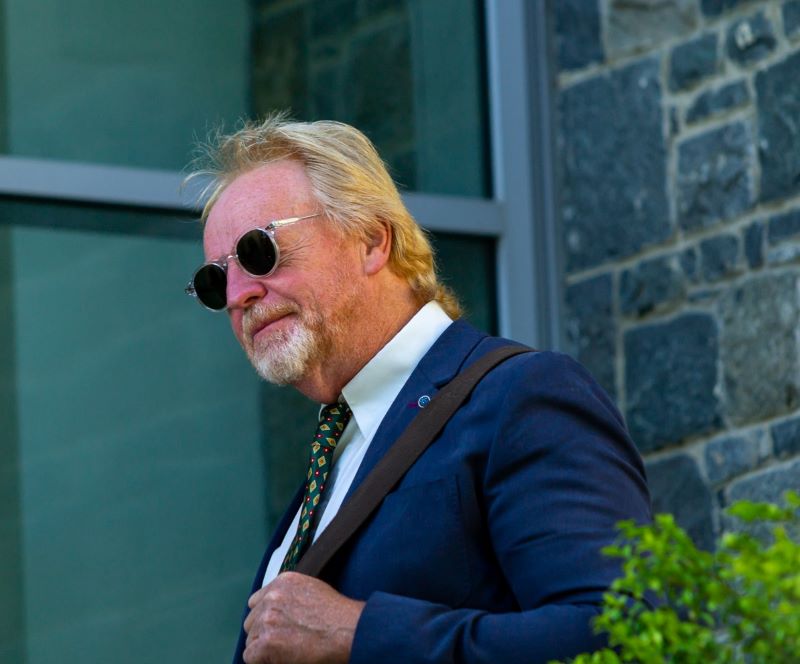
Pictured: Deputy Bob Murray criticised "virtue signalling" in the States' wish to extend the Paris Agreement to the island.
Deputy Murray said he had "researched this issue to a considerable degree", which led him to challenge the views of people "who believe it will be the end of the world if we don't eradicate carbon from our atmosphere" and who think "carbon is the great Satan of our age".
He said that extending the Paris Agreement would mean "we would be obliged internationally with whatever the most recent [climate conference] can find common ground on regardless of what its impact for us locally might be" and he warned "there will be a cost and we don’t know what that cost might be in time".
"I would far rather that we make changes to our energy use that suit our circumstances at a pace which suits our economy and not have that imposed upon us by other, particularly larger, jurisdictions. We do not need to sign up to the Paris Agreement to do that," said Deputy Murray.
"I’ve never been a fan of quangos but that is what this [panel of experts] would be. We have reinforced several times this week that decision making lies in this Assembly and the reason for that is that we were democratically elected...to make decisions by islanders. If we cede that responsibility to an expert panel, we run many risks, not the least of which is who we might consider an expert. An activist is not an expert."

Pictured: Deputy Bob Murray was concerned about Guernsey, as a very small jurisdiction, tying itself to international treaties, such as the Paris Agreement on climate change, made by much larger countries.
Deputy Murray continued: "Despite the great lie that the science is settled, I can assure you that it is not. I’m a master of science – certainly not in climatology – but it imposes a rigour on you. Research is at the basis of everything that you do in science. You don’t look at what it says on the internet. You don’t look at what social media tells you. You research it thoroughly before you make decisions.
"In the 1970s, the scientists were convincing us that we were faced with a catastrophic ice age. No question. Here we are, 50 years later, and the scientists are telling us ‘sorry, we made a mistake, decimal point in the wrong place, but we are going to have catastrophic warming instead’.
"Now there is something wrong with this picture that even a normal individual…even a citizen scientist would have to wonder what’s going on. I’m afraid that the uninformed rhetoric surrounding climate change impact will result in the choosing of an expert panel that has negligible qualification to establish the realities or the attendant considerations for our economy.
"So I say no to the Paris Agreement and no to an unelected panel to make the decisions that we as an Assembly need to make on behalf of those who elected us."
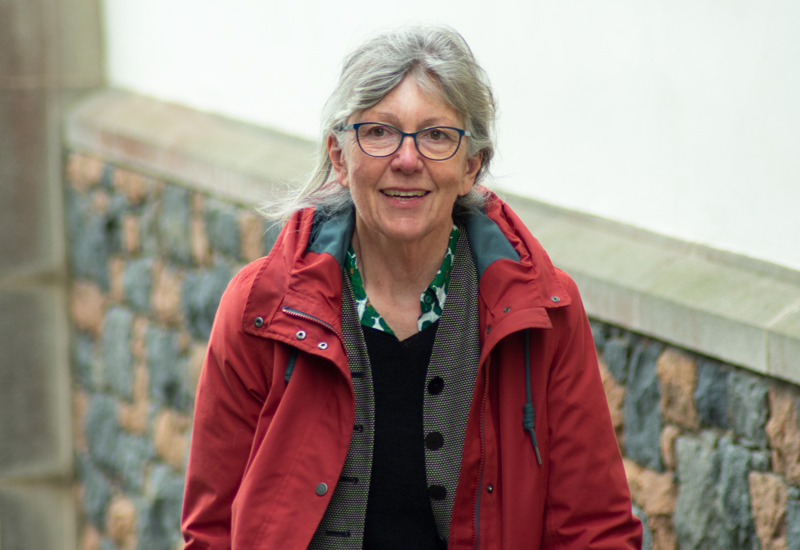
Pictured: Deputy Yvonne Burford was unimpressed by speeches which questioned the existence or impact of man made climate change.
Deputy Yvonne Burford was critical of Deputy Murray's arguments and said she fully supported the proposals in front of the States.
"I’m also a master of science, like Deputy Murray – in my case, in a relevant subject – and I profoundly disagree with him," she said.
"Yes, we are a small community, but the whole world is made up of small communities, and if everyone takes the same view then the world will become uninhabitable in many areas in my son’s lifetime and we owe our children and grandchildren much better than that."
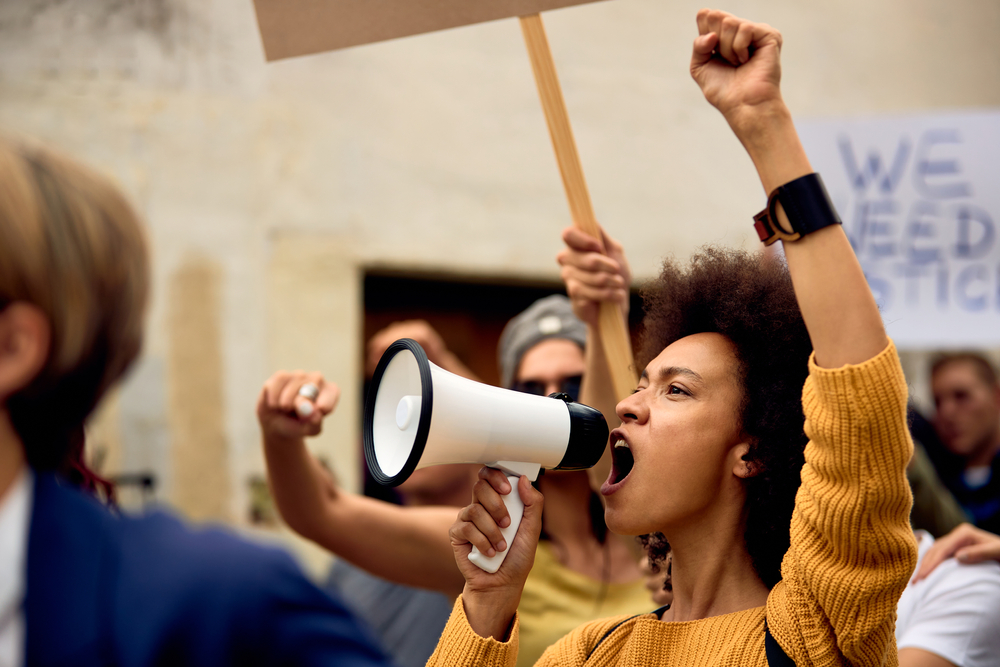
Pictured: Some deputies were concerned that activists rather than experts could find their way onto a panel which is to be established to advise the States on how to achieve 'net zero' carbon emissions.
Deputy Murray's views found support from his colleague in the Guernsey Party, Deputy John Dyke, pictured top right.
"I tend to agree with Deputy Murray’s strong comments on this," said Deputy Dyke. "I don’t know who these experts are going to be. Are they going to be experts or are they going to be activists? We need to think very hard about who we’re putting on this panel. It could do some good work or it could do some bad work. I’ve heard from some activists that climate change causes earthquakes. You can go too far on this.
"Like Deputy Murray, I’ve read around this subject, and I would strongly advise people to read other views on how you handle climate change without impoverishing the population."
Deputy Dyke went on to recommend books written by sceptics of the prevailing views of climate scientists and said "if all you do is watch the BBC, you won't have a very good view on this...we all need to get a more balanced view on this".
In debate the previous day, Deputy Lester Queripel, pictured top left, had gone further than Deputy Dyke and declared: "I don’t believe in global warming."
"I understand there are those who do, but they must realise there are also those who don’t, and I’m one of those who doesn’t, and those who do simply have to accept that. There’s no point trying to browbeat me into submission. They have their views and I have mine and the best thing we can do is agree to disagree," said Deputy Queripel.
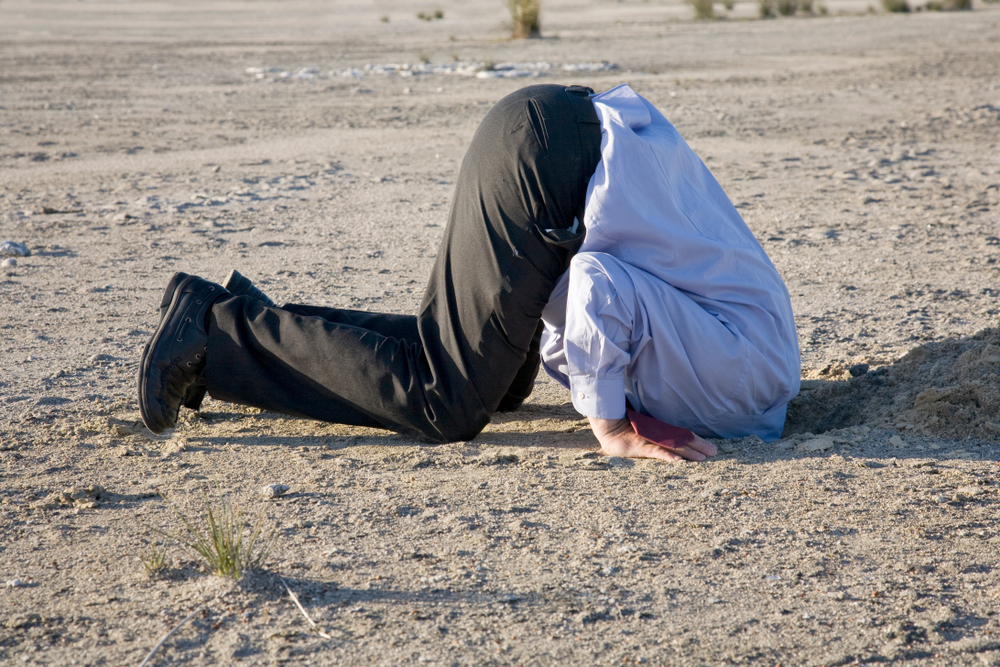
Pictured: Deputy Lindsay de Sausmarez said she was surprised to encounter views which indicated that some deputies had their "heads in the sand" about climate change.
Deputy de Sausmarez tried to reassure Deputies Murray and Dyke that her Committee was "looking very carefully at the potential costs and benefits before a final decision will be made" on the island's next steps on climate change.
"But when it comes to the panel, I hope they will also be assured that it is an expert panel. That is the whole point – to enable us to have access to the information and expertise that we need but currently lack. Otherwise, all we have is the equivalent of people Googling it, which is a very serious concern," said Deputy de Sausmarez.
"I’m not going to go down the rabbit hole that is climate science. I’m amazed that this has come up in this particular way. I appreciate that people have views but, if they are not persuaded by the enormous scientific consensus on this, perhaps they might be swayed by the economic aspect and take that seriously.
"Deputy Murray might want to talk with his fellow Party member, Deputy Nick Moakes, about how important green finance is and how important it is to that sector that we take our international obligations seriously and more specifically that we walk the walk domestically.
"If we don’t, that is the number one concern for them. It’s such a high reputational risk. We go out there, we promote ourselves as a green and sustainable finance centre, and we are at risk if we do not have domestic policies that can back up that claim, that positioning, that policy position.
"That is their grave concern and I am urged every time I speak with them – anyone from that sector – please do more, do it faster, do it well.
"Our work on the pathway to net zero is so important, and I was glad that – despite a small handful of votes against it – the proposition was very strongly supported by the Assembly, the vast majority of whom recognise its value."
Presidents' opposition up in smoke as States back cannabis review
Guernsey agrees in principle to extend Paris climate change treaty
Comments
Comments on this story express the views of the commentator only, not Bailiwick Publishing. We are unable to guarantee the accuracy of any of those comments.